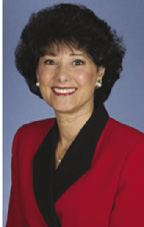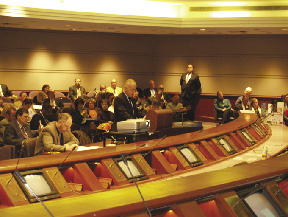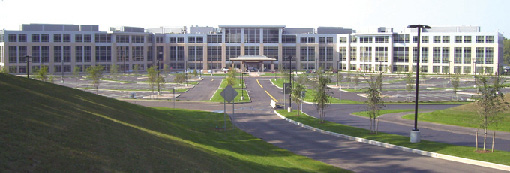It feels good to begin a new year and already see the momentum building to what will not be "business as usual." We ended the 2007 year seeing Cabela's, the world's foremost outfitter of hunting, fishing and outdoor gear, open its first northeast store in East Hartford. To everyone's delight, this destination location with its huge aquarium and museum quality dioramas of animal and wildlife is already one of the top three producing operations in the chain.
We also saw ING move into its new $100 million 478,000 s/f building in Windsor -the largest single office structure to be built in Greater Hartford in the last two decades. This region's highly educated and deep pool of experienced financial services professionals has helped solidify ING's commitment to this region. In keeping with ING's distinctive glass headquarters structure in Amsterdam, this building's design and construction was also environmentally focused, delivering substantial natural light into workspaces.
2008 is bringing new life to a former New Britain brownfields site as Carvel's new 120,000 s/f manufacturing and distribution facility is nearing completion and over 2,000 people attended the recent job fair. Meanwhile, Burris Logistics, a five-generation east coast refrigerated warehouse and distribution specialist, has moved into construction for Phase One of its 700,000 s/f facility in Rocky Hill.
But more than bricks and mortar, 2008 sees Connecticut and this region joining the national spirit for "change," and moving forward to ultimately make this state a more attractive place for business to invest and grow.
Collaboration has become a key theme and we were delighted to see Governor Rell sign a new law setting the ball in motion to develop a state-wide strategic plan for economic development by July 2009. The Department of Economic and Community Development (DECD) has held ten community forums throughout the state, led directly by Commissioner Joan McDonald, which provided the public with a unique opportunity for input.
"While certain strategies are appropriately applied state-wide, others are distinct to regions," said John Shemo, vice president and director of economic development for the MetroHartford Alliance, who testified at the Hartford forum on January 17th. Understanding all the factors that impact business growth and ultimately the state's economy are essential to a successful plan.
The State of Connecticut is also reaching out to its eight major chambers of commerce to improve communication, share information and resources, and discuss issues and challenges in each region.
"One of the key components of the state's economic development strategy is collaboration among the various state agencies and regional and local organizations," said Commissioner McDonald. "We want to build consensus on priority issues and the best way to do that is to get everyone involved."
The MetroHartford Alliance, the Hartford region's economic development leader and the city of Hartford's chamber of commerce, is taking a proactive role in helping to shape this region's economic future in areas that include: transportation, technology transfer, brownfield remediation and development, labor force quality, sustainability, cost of doing business, affordable workforce housing, land use policy, taxation, and availability of capital. Recently, the Alliance implemented a new technology tool that tracks bills and issues relative to this focus, easily allowing business to provide feedback in "real time" to their legislators. The Alliance has also formed a task force to establish a high impact Local Education Fund (LEF) focused on accelerating reform in the Hartford Public Schools.
Building off the success of the IFS Center for Educational Excellence, The Connecticut Insurance and Financial Services (IFS) Cluster, comprised of 30 major insurance and financial services companies, continues its focus on education of a trained workforce including productivity and nurtured innovation. In 2008, a new Associates Degree in IFS will be offered at all community colleges within the state.
"This program taps into a whole new labor market offering a great opportunity for students who are not currently on a 4-year track to gain entry into an industry poised for continued growth, "said Susan Winkler, executive director for the Connecticut IFS Cluster. The work of the IFS Cluster is tangibly resulting in a stronger, more competitive IFS industry and a more robust economy in Connecticut.
And the list goes on. So what does this mean for your business? It means that we welcome your business. Come and see us or call us in 2008 - it won't be business as usual!
Sandra Johnson, EDP is vice president and business development officer for the MetroHartford Alliance.












